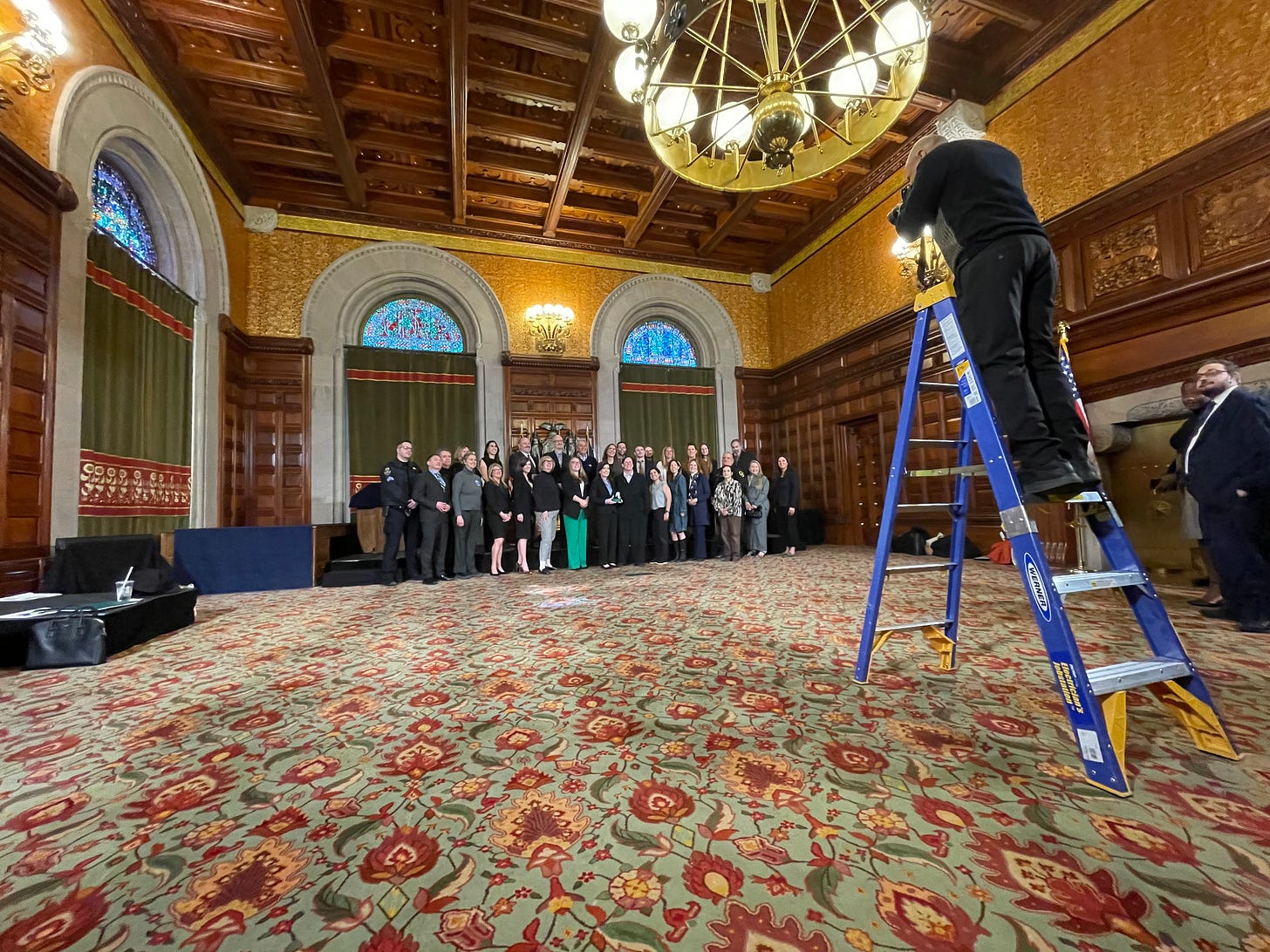EXCLUSIVE: NYS Animal Protection Federation Honors Hochul, Takes on Housing Discrimination and More in 2024 “Humane Agenda”
The Scoop New York is a newsletter dedicated to companion animals and the New Yorkers who care for them, from Buffalo to Brooklyn. NYC ACC KILLS, published by TSNY, enumerates and memorializes adoptable cats and dogs who were nonetheless exterminated by Animal Care Centers of New York City.
ALBANY — Members of the New York State Animal Protection Federation ventured to Albany last week to enumerate their priorities for the 2024 state legislative session, a.k.a. the NYSAPF “humane agenda.” Measures on this year’s wish list include fewer obstacles to investigating animal crimes, tougher penalties for animal cruelty convictions, and protections for bipedal New Yorkers who face pet-related housing discrimination.
Founded in 2010, the NYSAPF represents the interests of public and private companion animal care facilities statewide. A record number of its 110-plus members turned out for this year’s advocacy…




